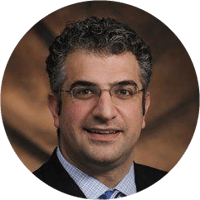
This blog is the first part of our series of interviews with leaders in orthopaedic surgery management.
At CaseCTRL, we believe in supporting the orthopaedic community as it strives to elevate the experience for surgical patients while also achieving efficiency and better care coordination throughout the surgical scheduling process to improve quality of care and profitability. With
this in mind, we recently talked with several surgical practice leaders about common challenges and strategies they are employing at their organizations.
Current challenge: Disjointed patient communications across the continuum of the care experience.
Surgical practices face a wealth of challenges as they communicate with patients leading up to the date of surgery and after, particularly with scheduler workforce shortages leaving many teams stretched thin. Moments spent playing phone tag with patients or searching for proper pre-surgical or after-care instructions can eat valuable time in the day. Yet these conversations are crucial. Meaningful, personalized education for the patient leading up to and following the surgery can play a key role in outcomes and patient experience.
As practice leaders look to retain staff and minimize likelihood of surgical delay or cancellation, the following steps are key:
- Prioritize alignment around mission. When strapped for time and resources, busy office staff can sometimes feel like order takers. Prioritizing regular check-ins between surgeon and scheduler around quality initiatives and celebrating wins can remind schedulers of the crucial role they play in the patient’s health and foster deepest commitment to mission. Regular sharing of performance data underscores the team’s value.
“Patient care a team sport,” notes Daryl Osbahr, MD, Chief of Orthopaedic Surgery and Managing Partner for Rothman Orthopaedics Florida. “If I didn't work with such an amazing team of health care professionals who are dedicated to excellence, we would not be able to provide the quality of care necessary for optimal patient outcomes.” - Don’t give short shrift to post-surgical interactions. All too often, practices focus so heavily on ensuring patients receive proper instructions and preparation prior to surgery that it can be easy to overlook educational needs during the weeks that follow.
“Whoever is interfacing with your patient on the back end needs to put just as much focus on quality as pre-surgical communications,” says Joseph Abboud, MD, professor of Orthopaedic Surgery at the Sidney Kimmel Medical College of Thomas Jefferson University.
“Yes, the office staff are doing administrative work and are not there to give clinical expertise or advice. But ensuring these communications are happening with the right frequency and ensuring the patient’s educational needs get met is so important. This member of your team is in a crucial position to make sure patients aren’t dropping off the schedule. The quality of your follow-up can impact patient outcomes and revenue.” - Keep the bigger picture in mind when communicating with patients. When reviewing communication strategies and workflows, don’t forget to consider what is happening outside of your office. Consider the patient’s perspective, says Abboud. “Let’s say we use one company for virtual therapy and another health system as our partner for the hospital or ASC. You can have these disjointed ways of reaching out to your patients, which is a turn-off because they are not sure who is reaching out to them and why.”
Taking the time to think through the communications experience at every hand-off, setting expectations and taking steps to ensure alignment with your own part of communications is the best way to create patient satisfaction across the continuum of care. - Don’t rely on form letters. Patients are often overwhelmed with packets of generic instructions. Instead, aim for education that is specific not only to the patient, but also the case type and surgeon, so patients can be confident that all content is applicable to them and there isn’t any guesswork. Making use of multiple channels (such as phone, text, and email) and using systems to proactively trigger reminders can go a long way toward ensuring patients properly comply with instructions and feel supported by their care team.
Communicating with your patients through the whole surgical journey is a challenge for any orthopaedic practice. But with these takeaways in mind, you can start to keep your patients and staff on the same page.
At CaseCTRL, we can help your surgery communication process.
We are a cloud-based, intelligent surgery management platform that can make communication and coordination of cases more efficient and with less administrative burden. Learn more by booking a demo with us today.
Special thanks to the leaders who have shared their expertise:
 Daryl Osbahr, MD, is Chief of Orthopaedic Surgery and Managing Partner for Rothman Orthopaedics Florida as well as the Executive Medical Director for the AdventHealth Orthopedic Institute, and the Orthopedic Residency Director for AdventHealth.
Daryl Osbahr, MD, is Chief of Orthopaedic Surgery and Managing Partner for Rothman Orthopaedics Florida as well as the Executive Medical Director for the AdventHealth Orthopedic Institute, and the Orthopedic Residency Director for AdventHealth.
Read Full Bio Here
 Joseph Abboud, MD, is Chief Medical Officer at Rothman Orthopaedic Institute and Professor of Orthopaedic Surgery at the Sidney Kimmel Medical College of Thomas Jefferson University.
Joseph Abboud, MD, is Chief Medical Officer at Rothman Orthopaedic Institute and Professor of Orthopaedic Surgery at the Sidney Kimmel Medical College of Thomas Jefferson University.
Read Full Bio Here










